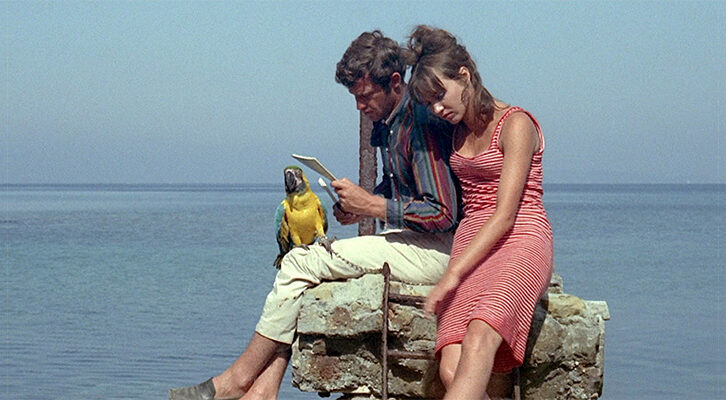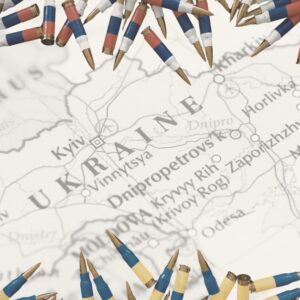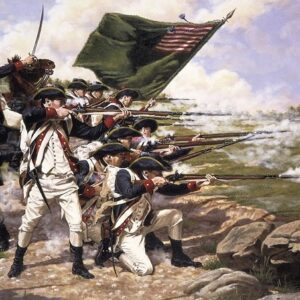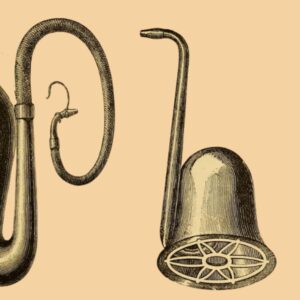
How Books Can Help Us Survive a War
A Sister Tries to Read Along With a Brother on the Front Lines
In the photo, my Marine brother is unshaven, wearing cammies, leaning wearily against the rough outer wall of a building. Around the corner you can see foothills of the Korengal Valley mountains, a remote and dangerous area in Kunar Province, rife with Taliban when Malcolm deployed there. A month ago as I was unpacking boxes in our new apartment, I found this picture that he’d mailed me. What my daughters noticed—with fearful delight—when I called them over to see it: Uncle Malcolm is smoking! He is. With a cigarette clamped in the middle of his mouth, my former track star brother is, like his fellow squadmate resting on the bench alongside, clearly taking a smoke break. What I immediately noticed, and the reason this photo is so precious to me: Malcolm is reading. His gaze isn’t fixed on the terrifying mountain behind him, where he’d just spent a sleepless rain-filled night at the Ops post, hearing the enemy all around him, and where he would be heading back shortly. Nor is he talking or joking around with the other guys in battle gear nearby. He’s focused only on the book he holds on his lap, in a moment of private concentration that I would recognize anywhere.
What can reading do for us when we’re under the gun? When we are in the throes of an extreme experience, when we’re lost or grieving or sick? Or when we are deeply, deeply afraid, as I was during the seven months Malcolm spent in Afghanistan. As a writer, teacher, and life-long reader, I have built my life around books, and so I reached instinctively for novels and stories myself when my younger brother was deployed to war. But for the first time, reading failed me. Fear for his safety had torn my attention into jagged pieces, and suddenly I couldn’t find the mental energy to connect one part of a page, or even a sentence, with whatever followed. I’ve never needed bookmarks—throughout my life I’ve always been able to pick up a novel in progress and flip right to the page I’d stopped at, skimming effortlessly past the previous chapters I instantly recognized as already read. But now I’d lost this ability, too. Worse, I began to put books down after not finding anything special within their covers: one, after another, after another. I gave up on experimental fiction and turned to comic novels; I tried mysteries and cookbooks and then some old favorites, stories I had read so many times they were part of my deepest inner life. At first infuriated at myself, and then simply bewildered, I couldn’t believe it. I’d put myself on a strict Internet-news fast, I never looked at CNN, but reading books? That was supposed to be what got me through!
The book Malcolm read that day in his makeshift bunker in the Korengal Valley was an English-language middle-school science textbook. He’d found it while rummaging around the broken old building—it was probably part of a shipment from one of the organizations trying to build schools in that foreboding place. I imagine it was a relief for him to have something to take his mind off going back into the mountains, and to remember a time before, when all he had to focus on was photosynthesis, nutrient cycles, and cell transport. In his unit, Malcolm was teased a lot for his constant reading, and inevitably nicknamed “the Professor” for having graduated from college. In Afghanistan, he read as much as he could, back on base, during the ten-to-twenty-day downtime after the long missions in the mountains—he’d brought some favorites from home: Dune, Starship Troopers, Ender’s Game. That last, the story of a young boy training for intergalactic battle, is a novel my brother loved so much growing up that we all read it—my mom and dad, my sisters and I—mostly to get him to stop bugging us to. During the war, he got a lot of his buddies to read Ender’s Game too, and they liked it, although he told me then they usually went back to car magazines and porn.
After he came home, I asked him what reading was like for him over there. Was it mostly to escape his surroundings? Yes and no. He also read to keep up the connection with his past. It was surreal, he told me, returning to a book like Starship Troopers, with all its military lingo and action. He’d remember reading that book as a kid, thinking about joining the Marines one day, wondering what it would be like. Then to be in those same pages again, this time on a cot, next to a weapon. . . But he also read anything available: spy thrillers I chose, magazines from friends, books that showed up in boxes from strangers, charity groups, and my mom’s church. Although two DVD players my dad sent him never got there—the third one made it—none of the dozens of sci-fi books he mailed my brother ever went awry. Weren’t there some books, I wondered, that were too difficult to read in those circumstances? Only one, Malcolm says. As a religion major in college, he’d loved working his way through Paradise Lost and tried to reread that epic while deployed. He put it down. “It’s too beautiful for a place like that,” he told me. “And I needed to stay more raw, and in tune with my job.”
But reading exacerbated the rawness of having him gone, for me. I could barely stand any reference to pain, fighting, or weapons when I came across them in print—even in the most innocuous of settings. Before he left, I proposed that I’d read whatever he was reading for the length of the deployment: a way to keep connected with his experience. Plus we have a history of doing this, of assigning each other books to read (sci-fi from him, lit fiction from me), in hopes that we might someday enjoy the other’s preferred genre. One year when he was in college and I was in grad school we read War and Peace at the same time, emailing back and forth about Napoleon and the Rostovs, Prince Andrei and Kutuzov. During our sister’s graduation, an endless ceremony, Malcolm and I sat side-by-side reading from my copy—his was back at the hotel—pages held up in the middle, elbowing each other for more room on the bench. Sure, he said, about my idea. But the plan fell apart right away when he told me he was bringing The Three Musketeers for those first plane rides overseas. I remember I stopped by the library that day, eager for D’Artagnan’s antics to distract me from the day my brother went to war. But that first duel—a comic duel!—with Athos, Porthos, and Aramis, left me agitated, disconcerted. The rapiers reminded me of bayonets, the bayonets made me think of beheadings, kidnappings, war. Our current war, and my one brother a part of it now.
There is a required reading list for Marines, a fact that both puzzles and heartens me whenever I consider it. Officially instituted in 1988—although recommended reading lists were known in the Marines since the 19th century—the list is known as the Commandant’s Reading Program. Recently, General Amos updated the list so that it breaks out required books by rank, including four books that all Marines of all levels must read. One of those is A Message to Garcia by Elbert Hubbard, based on an inspirational magazine article in 1899, about a US soldier charged with delivering a message to Cuban rebel forces during the Spanish American War. MarineParents.com summarizes the importance of this text:
In Hubbard’s account, [the soldier] delivered the urgent missive with no questions asked, no complaining, and no hedging. The enduring and almost unbelievably simple message of the essay is this: When asked to perform a task, don’t ask How…? or Why…? or Wouldn’t it be better if I . . . ? Just do it—and you will become more valued and respected than you ever imagined possible.
* * * *
I confess that this makes me shudder now, and would have sent me ballistic had I read it when my brother was sent to war. But to my surprise, in addition to dubious chest-thumpers with subtitles like “Everything You Need to Know I Learned in the Marines,” there are several other books on the list that portray war and its participants in a more ambiguous, conflicted way: Crane’s The Red Badge of Courage, Remarque’s All Quiet on the Western Front, and the nonfiction Making the Corps by Thomas Ricks. (Malcolm’s beloved Ender’s Game is even on the list now too!) General Amos writes that his goal with the list is to encourage debate and discussion, a broadening of perspective, and a shared literary frame of reference for Marines of all ranks. A good idea, I think, especially if it allows the young men and women approaching the extreme experience of war a space to air feelings of fear, uncertainty, or confusion—in contrast to the knee-jerk “just following orders” espoused by A Message to Garcia. Malcolm, though, laughed off the “required reading” when I asked him about it. “Rear-echelon shit,” he said. Their battalion was too busy prepping to deploy, and no CO was going to interrupt that for book reports.
But there’s no required reading list for those of us on the home front. As the summer changed to fall, nothing changed for me. I drifted, untethered, in a weird haze of tension and emptiness. Without a book to read, a story to follow, I found myself in a perpetual state of sensing that I had forgotten to do something important. I filled the time with TV and movies, nothing violent of course, and surprised myself by snorting my way through The Forty Year Old Virgin when my husband and I saw it in the theater. I had tried funny reads of course, reaching back to reliable favorites by Nora Ephron and Diane Johnson, but even they missed the mark. Why could I laugh during a movie, but find no relief in that cherished act of reading?
Well, what did it matter anyway? That’s what I grew to believe. To have lost entirely my life’s main pastime, the way I was accustomed to filling many hours of each day: at first it was jarring, and then it became normal, the “new normal.” Numbly, I taught my classes, took care of my preschool daughter, waited for the months to pass. All I wanted was for Malcolm to return safely. I would have traded just about anything for that, so in comparison, who cared if I never read a novel again? What is the point of a novel?
I wish I had a story about how when Malcolm came home I immediately resumed reading in a rush of relief and gratitude; I’d like to tell you the title of the first novel that brought me back that joy. The truth is, I can’t remember how it happened, how I began to read again, only that it did happen, and I am grateful. I think about how Malcolm tells me that one of his most important reading experiences in Kunar was A Tree Grows in Brooklyn by Betty Smith. Yes, that beloved classic coming of age story of an Irish-American family coping with war and poverty in early 20th century Williamsburg—not exactly his usual fare. He found a used copy in the chow hall book bins he’d check every day, and something about its green and white cover drew him in, reminded him of school and his old life. He says he read it on his small cot in the safe base between missions, with Marine rowdiness going on in the background.
I adored A Tree Grows in Brooklyn when I was growing up—as most bookish young girls do, I imagine. I read and reread it so many times that certain scenes are embedded in my memory: Francie calling out the doctor who sneers at her dirty skin; Francie reading her way through the public library, A-Z; the star-shaped coffee tin bank, nailed to the floor of a closet. In the mysterious way that reading is tied to place, when I even think about this novel, I see my childhood room: the cherry-printed wallpaper, the pine tree in the window, my overstuffed bookcase. Down the hall in a small room next to my parents was where Malcolm slept then; he would have been about five years old.
Why was that novel so important to you over there? I asked Malcolm recently. Was it the story or the setting? Did it take you away from the war? Yes, but… “It was reassuring, just to hold a book like that,” he told me.
I keep coming back to this idea, as I look at the photo of him and that science textbook, now tacked above my writing desk—what books do for us, simply while we’re holding them. It fills me with gladness that Malcolm had books in Afghanistan, to read, to share, to go back to. And it occurs to me that even while I couldn’t read, books held me during that time when my brother was at war. They ringed the walls of our apartment; they piled up in messy stacks in each room; they were in my favorite bookstores and the library where I brought my daughter every week. They waited for me to come back.
Emily Gray Tedrowe
Emily Gray Tedrowe is a Chicago-based writer whose second novel, Blue Stars was published by St. Martin’s Press. Her short fiction has been published in the Chicago Tribune’s Printers Row Journal, Fifty-Two Stories, and Other Voices. Recipient of an Illinois Arts Council Literary Award, she has also received fellowships from the Ragdale Foundation and the Virginia Center for the Creative Arts.



















